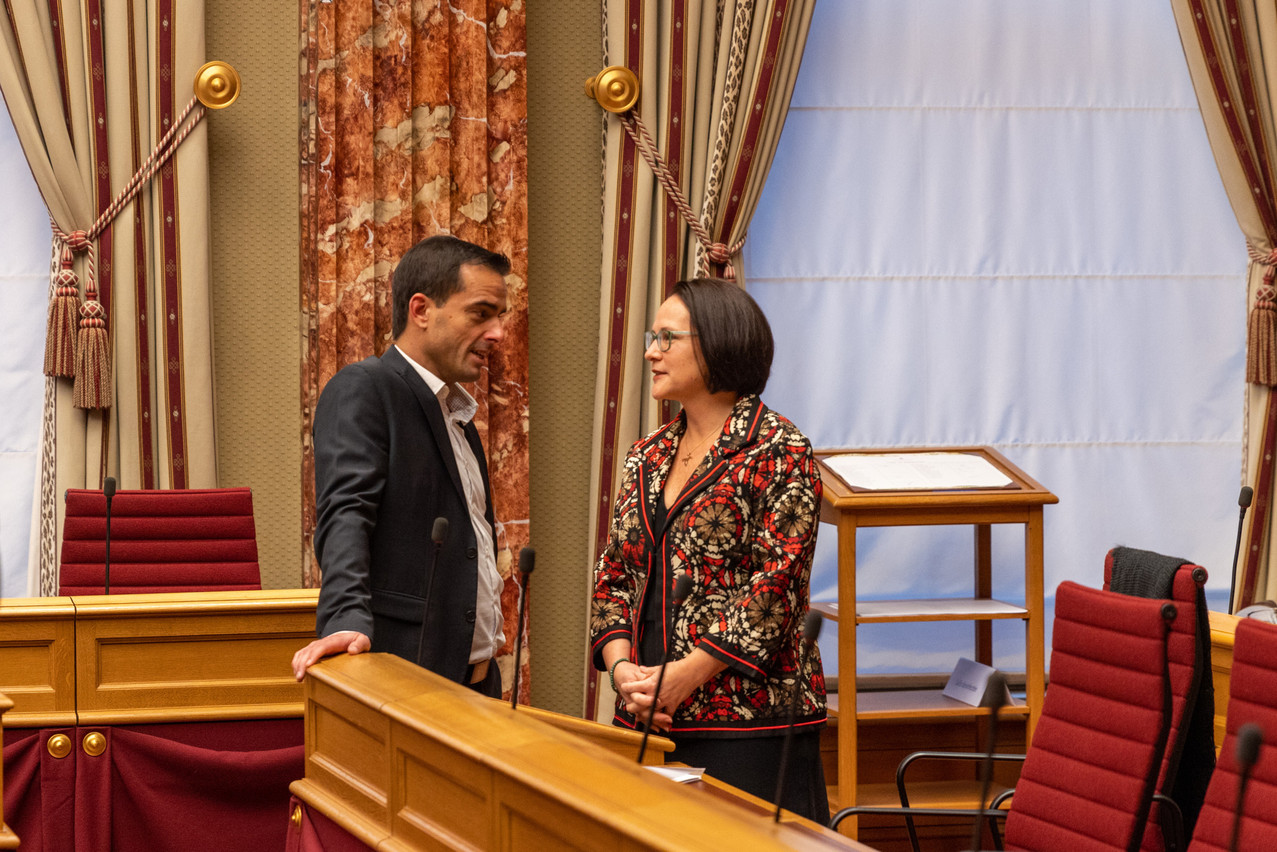Despite a drop in growth forecasts from 2% to 1.5% in Luxembourg for 2023 (growth will be 0.3% for the euro zone in 2023), and inflation estimated at 6.4% in 2022 and 3.4% in 2023, finance minister (DP) wants to be reassuring for the beginning of 2023, but maintains a prudent reserve: “All the figures are going in the same direction. The balance will be better this year than expected, with a deterioration in 2023 and an improvement thereafter. This is due to the measures taken in the tripartite framework to curb inflation. Without them, inflation would be at 8% today.”
She added that “the budget is not a law in which scenarios are cast in stone. Every year, there are variations between planned income and expenditure and what has actually been achieved. You can’t amend the budget because a forecast has gone up by half a percent, because the figures would be out of date the next day. What counts are the measures and the political plans.”
Read also
The minister praised the good health of the financial centre and then, referring to diplomatic trips made at the end of the year to Asia and North America, she also announced that “new financial players will set up in Luxembourg next year.”
Suspension points on new provisions in spring
Despite the repeated requests of the employers’ chambers for a reform of tax brackets, the minister is sticking to her line. “This would be the wrong signal at the moment,” she explained. As for the overall budgetary year, nothing is set in stone: “Despite this, I am reiterating the promise I made in October: if we see in the spring that there is room for improvement, I will try to introduce new tax cuts for the middle classes. These would then be presented in the SGP (Stability and Growth Pact) in April 2023. The same goes for the possible third salary indexation in 2023, which has not been budgeted for, but the minister expects that “by next spring the government will have a better view of the decisions to be taken.”
On attractiveness and talent, she said: “I will put proposals on the table if the outlook allows it again.” On housing, she added that “taxation is not always the key to solving the problem in Luxembourg. We need to build faster, more quickly, and more densely, in an urbanistic way.”
Middle-income citizens are not the state’s cows to milk.
Debates get underway
When asked about fiscal policy, MPs generally welcomed the fact that measures had been taken to combat inflation and to help households. But opinions differed on the volume and use of public spending and on the government’s tax policy.
(CSV) opened the comments on Wednesday. “With a doubling of the debt, we say that our public finances are resilient? In reality, it is a gadget policy where a toy was needed to make each partner happy. We want tax reform, and we believe it is possible in the current state of the budget. Middle-income citizens are not the state’s cows to milk. If people have to pay more taxes so that the state can meet its expenses, this becomes an unacceptable spiral.”
The government talks about social cohesion, but they are off the mark. For us, what they are proposing is precisely the cause of inequality.
On the social cohesion and solidarity mentioned by rapporteur (DP) and Yuriko Backes, (déi Lénk) rolled her eyes. “The government talks about social cohesion, but they are out of line. For us, what they are proposing is precisely the cause of inequality. We see a continuation of the policy, without a strong emphasis on addressing the fundamental crises, which leaves us little hope for answers that are equal to the challenges ahead.”
On the same subject, (Piratepartei) acknowledged that the measures “are good,” but that they come too late. “I wish we had talked about this eight or nine years ago,” Clement said. On the other hand, a satisfied (LSAP) welcomed the optimistic note of the speeches. “It’s good to give people hope and remind them that we have already overcome many crises. This one gives us opportunities, but we have to seize them,” he said. (déi Gréng) echoed this, saying that “this majority has already made great strides forward.”
This article was first published in and has been translated and edited by Delano.


